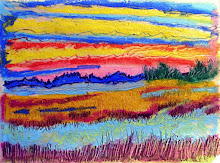Friday, November 16, 2012
Wednesday, November 7, 2012
Moshe the Invisible
short story by Don Schaeffer
The kids
gathered in Caroline's family living room for snacks. They lolled around on the
rug and chairs. The girls challenged the boys to leg wrestling contests. It was
chilly out in the late autumn. There were no leaves on the trees. But the room
was warm. It was soaked in joy. It was taken for granted. All who were there,
Kathy and Neil, Caroline and Nolan and Pete and unrecognized others invited
didn't care about the climate.
When David
arrived it was an accident. He rang the bell in ignorance. Caroline answered
politely, greeting him. She didn't ask for his invitation.
Neil saw
David enter and everyone heard him say, “Oh no.” This was the end of their joy.
They all felt the cold from the inside of David's half visible body.
David never
took it for granted. It was not granted. Not taking it for granted was David’s
transgression.
When Moshe awoke from this dream the world around his
bed shimmered in late summer moonlight. Ceres was not in the bed. He was in the
guest room bed. He came to that awareness. Moshe had mixed feelings about
sleeping alone. Maybe those feelings triggered the dream, maybe recollection.
He couldn't remember how he ended up where he was,
tabulated into a household unit, counted along with the true residents of New
York. He lived then among the creatures with raised eyes and straight
determined walks. Then he met Ceres, a woman not a fantasy and lived as the
estranged visions washed away in the years. But he was still only half visible
because he couldn't take it for granted. He cooperated in the reality of the
town and the country and the world but with obvious reluctance. Since he didn't
do so with a whole heart, the world never fully paid him.
Not speaking
up, not saying hello, slipping half-seen in and out of shops and down streets,
not knowing how to make his voice call up his visibility. He walked among those
who chatter, those in fashion, those with noses pointed straight ahead, with
human faces so completely recognizable as to declare themselves universal,
flesh solid, uniquely real. They all took this for granted. Moshe did so with
reservations. The slight hesitation in his mind, in his fingers, although not
really articulate-able, was noticed. Moshe was the ghost of the town. Its walls
were hollow, not quite owned by him.
It took Moshe ten years of graduate school to earn his
Ph.D. He thought it exceptional considering his poor memory for names.
Moshe worked as a TSR. Telephone sales representative
was his profession. Not what he planned and worked for. Failure was frightening
and refreshing as he came down.
At Re-Tel Corporation International selling telephone
donations for minor charities that needed that kind of help he was part of a
troop of telephone headset wearers, long evening hours bent over a monitor that
spit his script out at him as well as bits of history. Selling was frightening,
a flow of human voices giving and not giving, under the hot light of chance.
Moshe always thought that chance was the language of God. He tried to measure
his regeneracy by his sales, a gambler's preoccupation, watching waves of
numbers on display, flowing through the hours and minutes, envy and
embarrassment.
Moshe sold for half-legitimate mortgage banks, credit
card companies, low legitimacy financial schemes, absurd mail order offers with
hidden clauses that had to be read quickly. He sold memberships and
subscriptions, contract deals. Ten years of pretense fell to earth and ten
years of raw labor of the heart.
Legally, the shift had to end by 9. It was completely
night and the late autumn had shifted into cold as the would-be,
might-have-been Moshe made his way to the glass bus shelter. He did feel like a
citizen tonight, one among many. Those in the shelter, slightly hand-me-down
and raw, everyday human products shared a metal bench or stood against the
glass looking for buses. The wind managed to get under the plate glass and made
him shiver. He feared a mild form of fear because of the shadows around him.
Moshe always saw himself as young, the youngest and
most helpless in the room, even with his bald head, his graying sideburns and
his old man beard. Apparent seniority and sophistication hid him and he rode
around in his face and body like rajah in a tent atop an elephant.
On
Wednesday evening when Moshe had off, while he waited for the fright of his
next shift, he and Ceres went to the nearby casino. They had dinner in the
plastic cafeteria, fitted to look like Acapulco, which he would never see in
reality. They kept their expenses for gambling down to ten dollars. Each of
them sat at a 25 cent slot and watched the flow of spinning fruit and diamonds.
Here was Moshe’s hall of prayer. The slot machine was his prayer wheel, the
word of God suspended in time directly viewable in wins and losses. He saw the
hills and valleys of the hidden holy world.
Subscribe to:
Comments (Atom)

